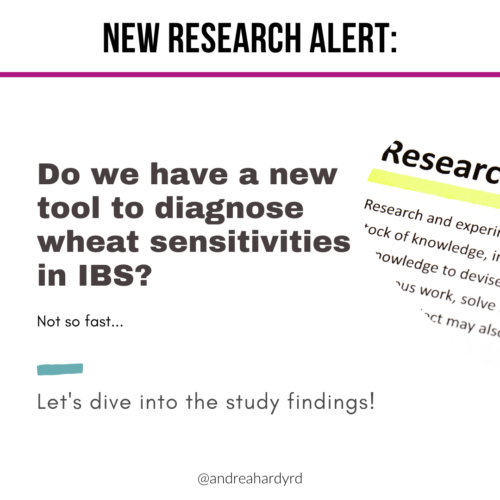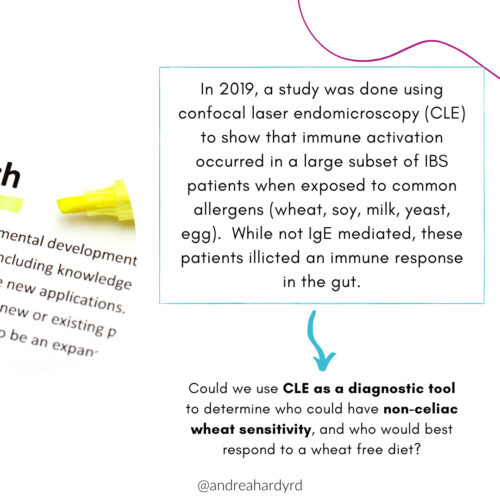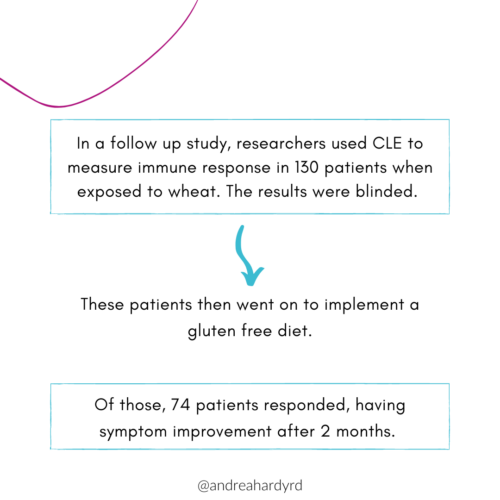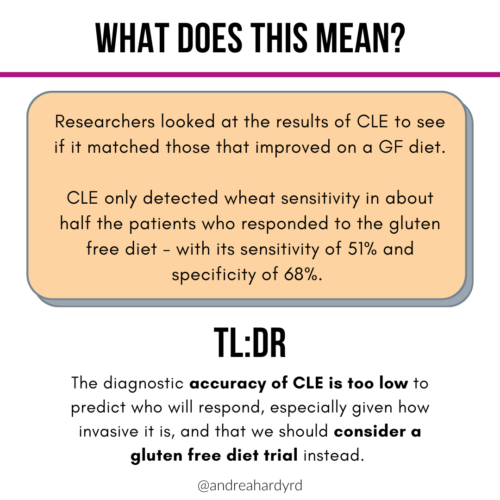As an IBS dietitian I am always reading up on the latest IBS research. On Instagram @AndreaHardyRD, I talk all about wheat sensitivities and whether or not we can diagnose wheat sensitivities in IBS!
Do we have a new tool to diagnose wheat sensitivities in IBS? 😲
Not so fast (unfortunately!)🙃
In 2019, an incredible study was done using confocal laser endomicroscopy (CLE) to show that immune activation occurred in a large subset of IBS patients when exposed to common allergens (wheat, soy, milk, yeast, egg). While not IgE mediated, these patients illicted an immune response in the gut. (See my last post on this study summary!)
This lead researchers to ask – could we use CLE as a diagnostic tool to determine who could have non-celiac wheat sensitivity, and who would best respond to a wheat free diet?
In a follow up study, researchers used CLE to measure immune response in 130 patients when exposed to wheat. The results were blinded. These patients then went on to implement a gluten free diet. Of those, 74 patients responded, having symptom improvement after 2 months.
From there, they looked at the results of CLE to see, did it match those that improved on a GF diet?
CLE only detected wheat sensitivity in about half the patients who responded to the gluten free diet – with its sensitivity of 51% and specificity of 68%.
This means that the diagnostic accuracy of this test is too low to predict who will respond, especially given how invasive it is, and that we should consider a gluten free diet trial instead.
However, there are limitations to consider. Many patients with IBS might have a food intolerance to fructans, rather than a sensitivity to wheat, accounting for the response being higher in that subset of patients. As well, there is the possibility that CLE only measures one type of reaction to wheat, leaving more to be elucidated.
While we aren’t able to use this yet to diagnose wheat sensitivity, it does give some promise (hello, possibility of combining with other diagnostic tools?)






Recent Comments